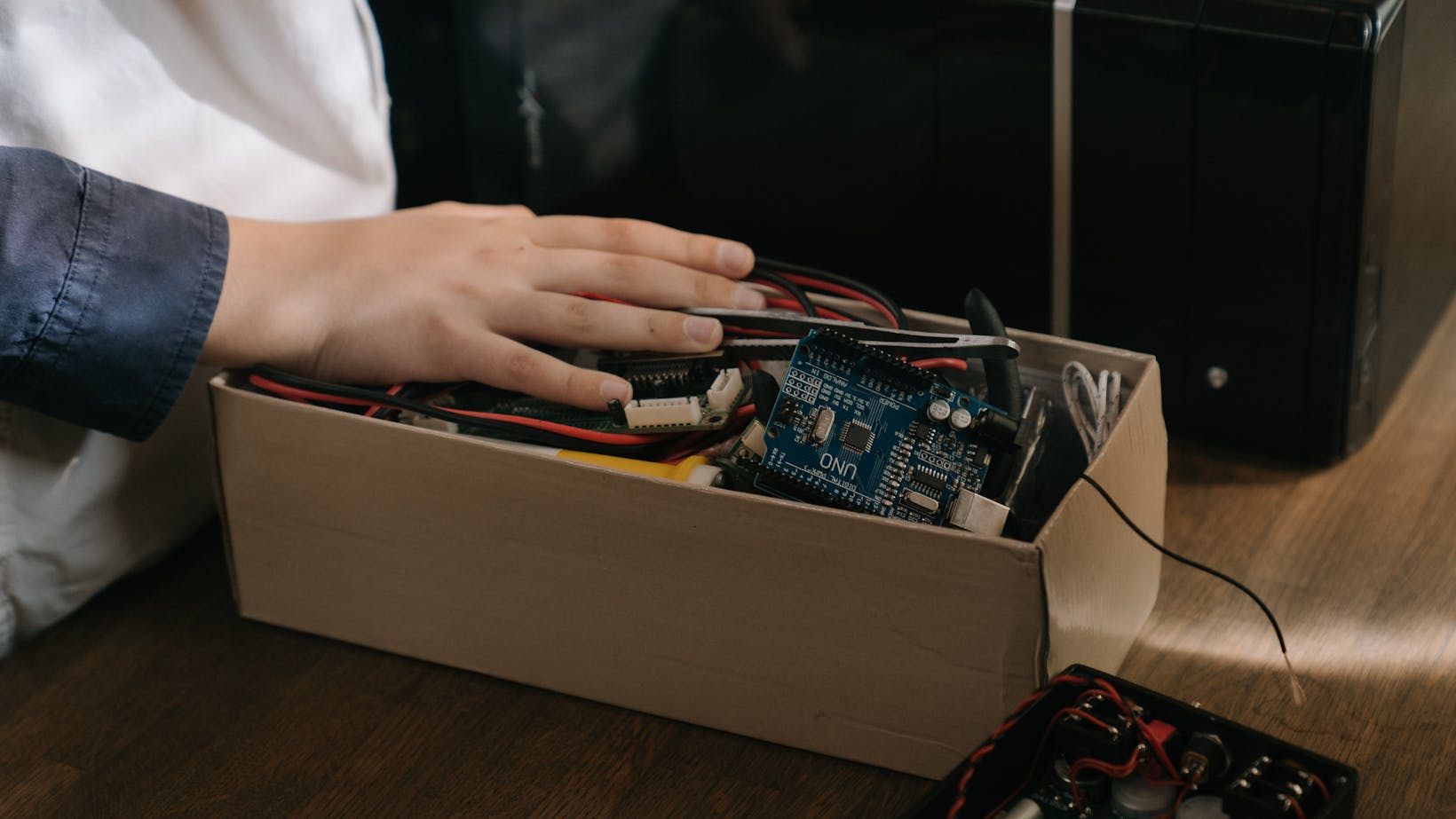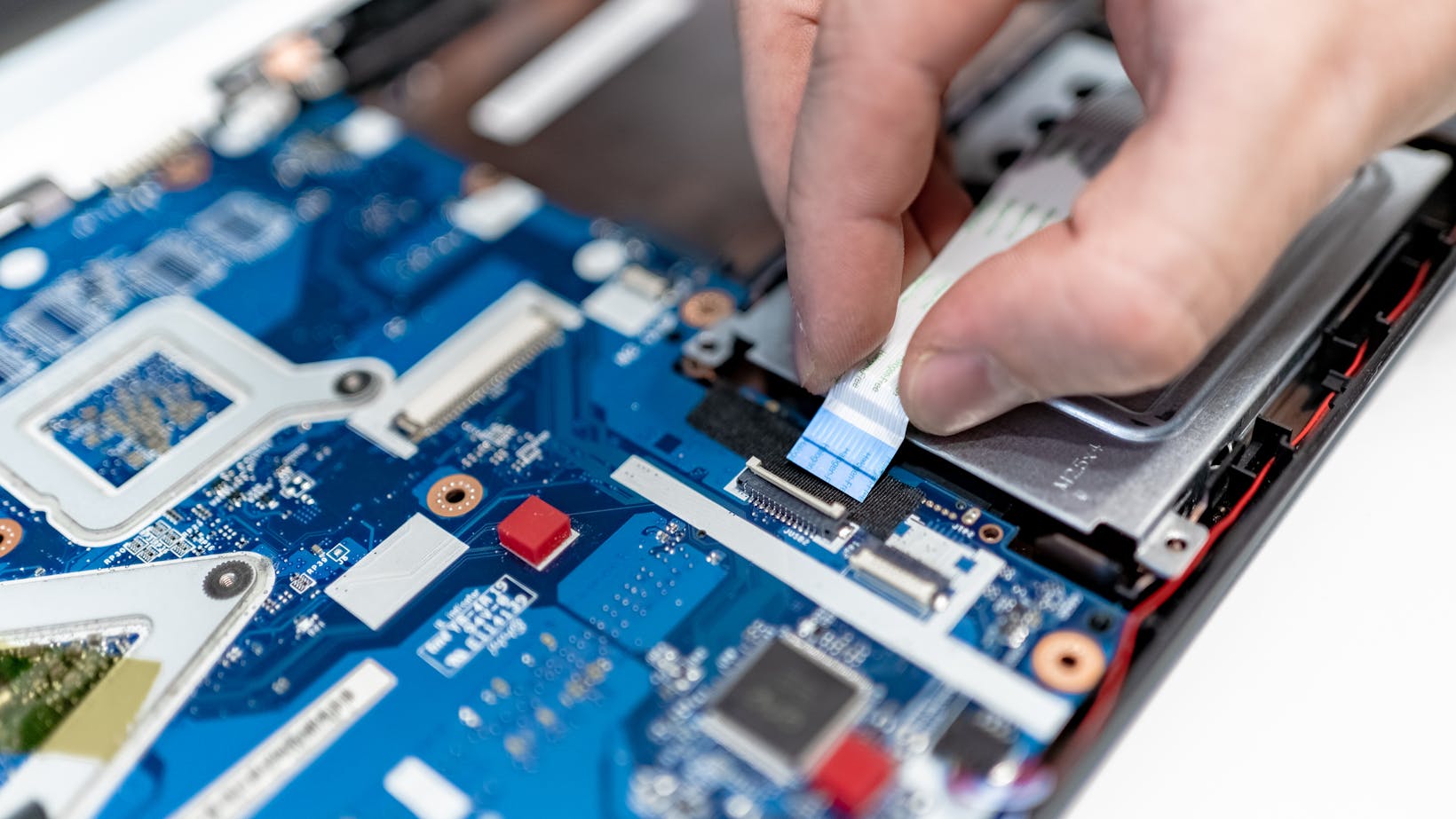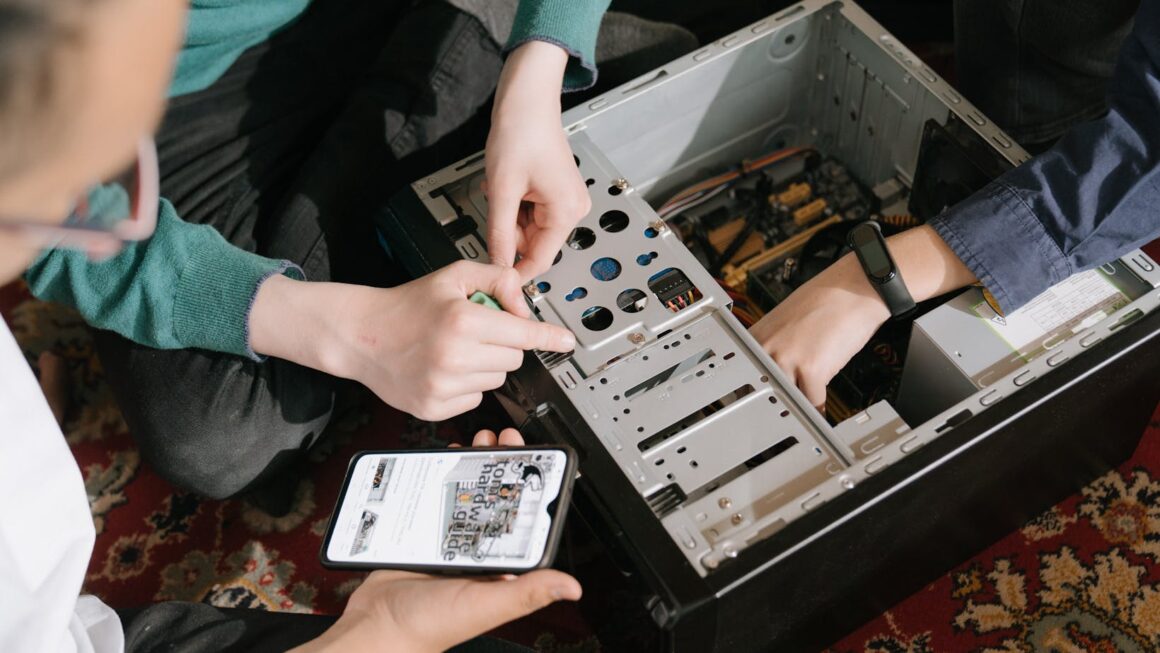Buying a refurbished computer can be cost-effective and lets you get the best of two worlds: quality components without having to pay top dollar. However, it’s important to take certain steps before making your purchase so that you have an idea what type of equipment is being offered for sale.
The “pros and cons of refurbished computers” is a question that comes up often. There are many different factors to consider when buying a refurbished computer. This article will list the pros and cons of purchasing a refurbished computer as well as provide tips for those who may be considering buying one.

If you’ve never done it before, buying used electrical goods like PCs might seem a bit scary. Surprisingly, purchasing a reconditioned computer may be a wise and low-risk approach to save a lot of money. Is it acceptable to purchase a reconditioned computer, and should you?
This post will go over the advantages and disadvantages of used devices, as well as what to anticipate and where they originate from, as well as some purchasing advice for refurbished laptops. While purchasing certified refurbished products is generally safe, being aware of a few key points might mean the difference between a dangerous, bad shopping experience and being pleased with your new computer.
Refurbished computers are computers that can no longer be marketed as “new” and are instead offered for resale at a reduced price. The maker or refurbishing company normally restores and tests all refurbished devices to guarantee they perform as well as a ‘new’ item. Here are several examples:
- Cancelled or returned orders that cannot be resold as new
- Returns that have been rectified and retested after being found to be defective.
- Items with minor aesthetic flaws such as scrapes or dents
Refurbished vs. Recertified: What’s the Difference?
People typically frown when they hear the words’refurbished’ or’recertified,’ since they link these terms with flaws or previous usage. While the equipment may have been used before, most will go through a thorough refurbishing procedure, resulting in a near-new item for you.
 There’s no need to be concerned; a reconditioned PC will almost never have looked like this in the past.
There’s no need to be concerned; a reconditioned PC will almost never have looked like this in the past.
The terms’refurbished’ and’recertified’ are sometimes used interchangeably, although they are typically used interchangeably. ‘Recertified’ does suggest that the computer has been subjected to further testing and quality checks before being sold, but this is also true of most reconditioned things. Because each manufacturer’s phrasing will change, it’s a good idea to do some research to figure out precisely what you’re receiving and whether or not it includes warranty lengths.
Refurbishment often include quality assurance testing, cleaning, and, if necessary, repair.
So, what does it imply when a computer is referred to be “refurbished”? As far as we know, there is no true standard, although a refurbishment should at the very least include a factory reset, cleaning, and testing of the equipment.
A typical refurbishing procedure for a malfunctioning or damaged machine would involve repairs or replacement of the problematic components before the item is re-tested to verify the complete computer operates properly again. Because such computers cannot be legally marketed as “new,” they are reintroduced to the market as “refurbished” PCs and offered at a reduced price.
A’refurbished’ computer could not have even been opened; it might have just been returned or the customer’s purchase canceled. In certain circumstances, the item is virtually new, but it may not be legal to sell it as such, thus it is placed on the’refurbished’ shelf for resale. Keep your eyes peeled for these ‘open box’ offers.
Because the refurbishment process varies depending on who is performing the refurbishing, you’ll want to conduct some research on who is selling the refurbished items so you know exactly what you’re receiving.
Any refurbished item should have completed the proper amount of testing, quality assurance, cleaning, and/or repair, if applicable. Buying a reconditioned PC from a major, respected manufacturer rather than a third-party vendor is the greatest approach to reduce your risk.
Refurbished PCs, depending on your requirements, might be a great option to save money on your next PC buy. In most circumstances, you may acquire a computer for a big discount that is virtually new or operates as new.
Here are several examples: Because it’s just a superb value offering for a basic desktop computer for an everyday user – you’d be hard-pressed to find this value anywhere – this HP 8300 Elite Small Form Factor computer that we evaluated has been on the bestselling Amazon rankings for weeks now (if you can set aside any preconceptions about it being refurbished). The HP 8100 Desktop PC is another example of this.
Refurbished machines are often certified to perform as well as new ones. However, one caveat is that the quality of the machine is dependent on the seller’s refurbishing technique and quality assurance policies, since the machine’s quality is determined by the small details of the seller’s refurbishment procedure and policies.
If you can verify that the used computer meets the same performance standards as its ‘new’ equivalent, and that purchasing refurbished has no disadvantages over buying new, we believe buying refurbished items is a terrific idea – as long as the price is low enough to compensate any perceived risk. However, in most circumstances, the risk is minimal since the customer is covered by the seller’s guarantee and return policy.
Check to see whether the seller is reputable.
When purchasing a refurbished computer or laptop, the most important consideration is to learn what the refurbishment comprises and to study the small print on the seller’s refurbishment procedure.
When purchasing reconditioned items, we suggest only purchasing items that have been refurbished by the manufacturer. If necessary, a major recognized firm or party in whom you have faith may be appropriate.
Why? Because manufacturer-refurbishments will almost certainly use the same brand/product and quality assurance test procedures when replacing faulty hardware, third-party companies may not, which means you could end up with different or inferior hardware if a defect is discovered during the refurbishment process. When purchasing reconditioned things, the less trustworthy the vendor, the higher the danger.

Larger, more renowned businesses, such as HP, Apple, Dell, and Lenovo, are reliable, and you can typically rely that any refurbished items will be fixed and tested to the same high standards as their ‘new’ products.
Third-party sellers like Amazon and Newegg are also pretty reliable, and their warranty and repair policies tend to be favorable, reducing your risk.
In any event, if you’re thinking about buying a refurbished system, make sure the vendor gives some kind of guarantee and that you’re aware with their return policy in case anything goes wrong or you’re not completely pleased with your purchase.
Computers that have been refurbished aren’t for everyone.
If you don’t like the notion of someone else handling or even using your computer before you, or if always attempting to find out what’s wrong with your machine keeps you up at night, you may be better off purchasing new.
Another thing to keep in mind is that reconditioned laptops may sometimes have minor visual flaws such as dents and scratches (although note that this may not be true for all refurbished offerings, so check with the specific seller). If you’re unable to tolerate this, a reconditioned computer may not be right for you.

Finally, a reconditioned computer has most likely been transported and handled more than a new computer off the shelf. While it’s uncommon, there’s always the chance that handling can harm sensitive components like hard drives, so if you’d rather have the peace of mind that comes with owning a brand new computer that hasn’t been handled much, you could be better off purchasing new.
Upsides
- Because it is no longer legally deemed “new,” you may get a great deal on a high-quality PC.
- Most reconditioned PCs were likely never defective in the first place. A large percentage of the returns are due to buyer’s regret.
- The hardware in the devices will have been thoroughly tested, as opposed to their ‘new’ counterparts, reducing the possibilities of you receiving a malfunctioning item.
- If you’re covered by the seller’s warranty and return procedures, there’s minimal danger.
- Less environmental effect since goods are restored and resold rather than discarded.
Downsides
- You’ll never know why a renovation was required in the first place.
- There will almost always be some unknown about the computer’s past history — for example, it may have been transported and handled more than a ‘new’ computer.
- If you don’t do your research on warranties and returns, you may be putting yourself at danger.
- The availability of reconditioned computers is determined by market conditions.
If you’re thinking about purchasing a refurbished computer, we’ve put up a list of things to double-check to reduce your risk before making a purchase:
- Read the small print regarding the seller’s reconditioned PCs to make sure you’re comfortable with the item’s past history of resale.
- Read the small print on the seller’s refurbishing procedure; it should at the very least involve testing.
- Examine the seller’s guarantee; is it as good as a new machine’s? Make certain there aren’t any exceptions.
- Check the seller’s return policy; can you return the item for a full refund if you are unhappy with it?
- Check to see whether aesthetic damage/blemishes are to be anticipated with refurbished items, and how they will be addressed by the return policy if they aren’t to your liking.
- To ensure that the specs and hardware of the refurbished product and the corresponding new product are same, compare them.
- Compare the cost of a reconditioned unit to the cost of a comparable new unit.
Purchasing Advice
- Always purchase from a manufacturer or a well-known/respected firm.
- Before comparing prices, be sure buying used over new makes sense. Always verify the specs on your refurbished purchase to make sure they match the similar new goods.
- Only purchase refurbished instead of new if the price difference is large enough to warrant the greater risk. To offset the added hassle/research/potential danger, we recommend establishing a price reduction goal of at least 15%.
- Make sure the warranty duration is at least as long as it would be if you bought the item new. For an extra fee, certain manufacturers may provide an extended warranty.
- If you locate a decent price, don’t wait too long to attempt to buy it; reconditioned laptops are generally picked up fast since they are such a fantastic deal.
- Some components, such as laptop batteries and hard disk drives, are more prone to wear and tear over time. Before you buy, make sure you know something about the probable history of these components, and consider if the cost reductions are worth the risk of having slightly used parts.
You Should Know What You’re Buying
Not all bargains are good bargains, so be sure you know what you’re getting before you purchase. Before you commit to anything, read the tiny print and investigate the specs of the computer you’re considering.

Because some used computers contain older technology, the ‘new’ counterpart may have already dropped in price, resulting in the cheap price you’re seeing on your refurbished computer not being such a good bargain after all.
Always check the cost of the similar ‘new’ computer for comparison’s sake to prevent being duped.
Acer
Official recertified Acer goods, like as desktops, laptops, and even monitors, may be found here; recertified items are ones that have been returned or previously opened (and having undergone cleaning and restoration to a functionally new state). The site is simple to use and displays you just how much money you’re saving. A 90-day limited warranty and a 30-day return policy are included with recertified items.
Amazon
Despite the fact that Amazon is not a computer manufacturer, its strong return policy makes it a wonderful site to acquire used computers. ‘Amazon Renewed’ refurbished products, according to their website, are fixed and handled by certified manufacturers or specialist third parties. You are assured a minimum of 90 days limited warranty on all purchases of recertified items, and the specific item being sold may have a longer warranty duration.
Apple
Apple’s refurbished items come with a one-year guarantee and free shipping and returns. Apple Certified Reconditioned Gadgets are pre-owned Apple products that have been refurbished and tested by the company. Savings of up to 15% are usual, and you may even choose to extend the guarantee on things you buy.
Dell Outlet or Refurbished Dell
Dell refurbished items are those that have been opened and used before, and may have minor aesthetic flaws that do not impede functionality. When purchasing reconditioned, you receive the same guarantee duration as new products, according to the website.
HP
Demo products, cancelled/returned purchases, defective items that have been rectified, and overstocks are all examples of HP certified reconditioned goods. They provide a one-year limited warranty with the possibility of an extension.
Lenovo
Lenovo’s outlet website appears to have three distinct categories: new, refurbished, and scratch and dent; however, little information is provided on the devices’ histories and general warranty offerings for refurbished items; however, some of the individual deals we looked at had one-year warranties on offer.
Newegg
Newegg, like Amazon, isn’t a manufacturer, but its refurbished items come from approved repair shops and are covered by Newegg’s return policy. You might anticipate some of their repaired items to have minor visual flaws or wear marks.

No, buying a refurbished PC isn’t hazardous if you do your homework and purchase from a reliable provider. Buying reconditioned may save you a lot of money on your next computer, particularly if it’s a ‘open box’ deal and the machine is basically new.
But, before you do, keep in mind that we only advocate purchasing from the manufacturer or a major, trustworthy firm with a robust return policy. Check the tiny print to make sure you know precisely what you’re receiving, and follow our purchasing checklist to give yourself piece of mind.
Purchasing a refurbished computer has a lower risk than purchasing a new computer, but new computers still carry the lowest risk since you know they haven’t been transported and handled several times before you get your hands on them. Refurbished computers, on the other hand, are a terrific choice to keep in mind for individuals who like a good deal.
A refurbished computer is a pre-owned computer that has been restored to be like new. The “is it worth buying a refurbished gaming pc” is an interesting question that I have seen on many forums. There are some tips to consider when buying a refurbished PC.
Frequently Asked Questions
Is it OK to buy a refurbished desktop computer?
A: Yes. Refurbished computers are tested by the manufacturer to ensure they are in good working order before being sold, so they will work perfectly fine for most people.
Is it worth buying refurbished computers?
What are the risks of buying a refurbished computer?
Related Tags
- best place to buy refurbished computers
- refurbished desktop computers with windows 10
- are refurbished computers from walmart good
- renewed computers review
- should i buy a refurbished laptop



